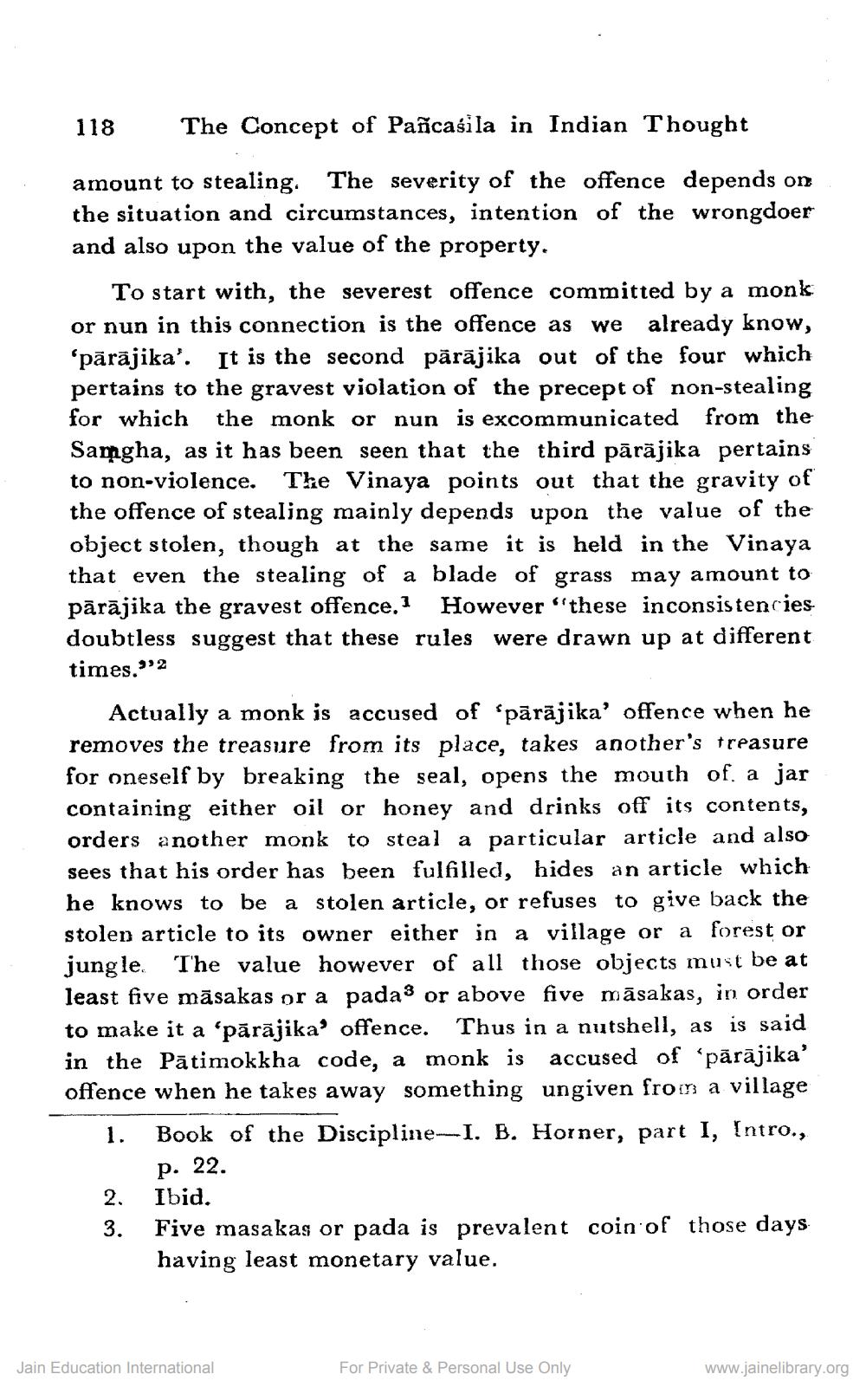________________
118
The Concept of Pancasila in Indian Thought
amount to stealing. The severity of the offence depends on the situation and circumstances, intention of the wrongdoer and also upon the value of the property.
To start with, the severest offence committed by a monk or nun in this connection is the offence as we already know, 'pārājika'. It is the second pārājika out of the four which pertains to the gravest violation of the precept of non-stealing for which the monk or nun is excommunicated from the Samgha, as it has been seen that the third pārājika pertains to non-violence. The Vinaya points out that the gravity of the offence of stealing mainly depends upon the value of the object stolen, though at the same it is held in the Vinaya that even the stealing of a blade of grass may amount to pārājika the gravest offence. However "these inconsistencies doubtless suggest that these rules were drawn up at different times."2
Actually a monk is accused of spārājika' offence when he removes the treasure from its place, takes another's treasure for oneself by breaking the seal, opens the mouth of, a jar containing either oil or honey and drinks off its contents, orders another monk to steal a particular article and also sees that his order has been fulfilled, hides an article which he knows to be a stolen article, or refuses to give back the stolen article to its owner either in a village or a forest or jungle. The value however of all those objects must be at least five māsakas or a pada> or above five māsakas, in order to make it a 'pārājika' offence. Thus in a nutshell, as is said in the Pātimokkha code, a monk is accused of pārājika' offence when he takes away something ungiven from a village 1. Book of the Discipline-I. B. Horner, part I, Intro.,
p. 22. 2. Ibid. 3. Five masakas or pada is prevalent coin of those days
having least monetary value.
Jain Education International
For Private & Personal Use Only
www.jainelibrary.org




